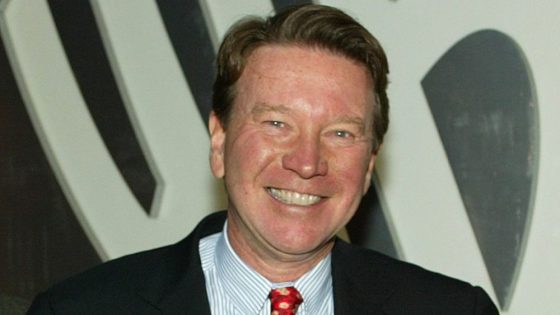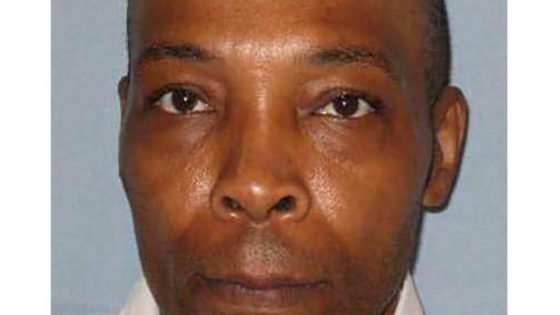Jamie Kellner, who made his name as the only exec ever to create two broadcast networks — Fox and The WB (both of which also achieved profitability under his watch), died Friday at his home in Montecito, Calif. He was 77. Kellner had a tremendous impact on the television business in the 1980s, 1990s and early 2000s, and was considered an entrepreneur at heart as he built Fox and The WB, and then independently created the Acme Communications stations group, and for a time ran Turner Broadcasting as chairman and CEO (succeeding Ted Turner).
Kellner’s impact includes landmark programming like “The Simpsons,” “Married… With Children,” “Cops,” “In Living Color” and “21 Jump Street” at Fox; the long run of pop cultural touchstones at the WB like “Dawson’s Creek,” “Buffy the Vampire Slayer,” “Gilmore Girls,” “7th Heaven” and “Felicity”; and he even worked with Lorne Michaels in the first syndication sale of “Saturday Night Live” while at Orion. He also was key to the early careers of creatives like Greg Berlanti, JJ Abrams, Kevin Williamson and Joss Whedon, and comedy stars including Jamie Foxx, Steve Harvey and The Wayans Bros.
“Jamie Kellner was a titan and a visionary in our industry and yet he will be remembered by anyone lucky enough to work for him as an executive or as a showrunner as a warm, funny, charismatic, creative and kind mentor, friend, husband and Dad,” said producer Greg Berlanti. “He dedicated his life in TV to fostering and betting on generations of talent both in front of and behind the camera. I know I speak for so many others when I say my life was changed by the Camelot-esque home he created for all of us who worked at The WB. He will be greatly missed.”
Kellner retired at 57 — having owned a stake on The WB when it launched as a joint venture between him, Warner Bros. and Tribune Broadcasting. But his legacy looms large even today with both Fox and The CW, which resulted in 2006 from a merger between The WB and UPN.
The exec passed on other opportunities to return to the corporate suite. Instead, he settled into his home base in the posh Santa Barbara suburb Montecito with his wife, Julie, while pursuing other passions — including sailing around the world on his ketch called “Irishman,” playing countless rounds of golf and launching a winery in Santa Ynez Valley, Cent’Anni. An architecture buff, Kellner also designed and built numerous homes.
Kellner still kept up on the TV business from time to time. Last year, he joined another early Fox alum, Preston Padden, in sending a letter to the FCC adding his voice to the petition to deny Fox’s broadcast license renewal of its Philadelphia station WTXF.
“Unlike the news feeds provided today by Fox News Channel, our news feeds did not prominently feature advocates like Rudy Giuliani and Sidney Powell spouting nonsensical lies about a Presidential election … If the character requirement for broadcast licensees is to have any meaning, the FCC must designate the application for a hearing to evaluate the Murdochs’/Fox’s character qualifications to operate WTXF on the public airwaves,” he wrote at the time.
Kellner had always been a bit of a maverick in the TV business. He had already been a syndication exec and alum of CBS, Viacom and Orion when he was hired by Rupert Murdoch and Barry Diller to help start what would become Fox. Kellner was named the first president and chief operating officer of Fox Broadcasting Co. in February 1986 — a few months before the announcement of “The Late Show with Joan Rivers,” and a year before the arrival of original primetime series (“21 Jump Street,” “Married… With Children”).
Kellner, along with lieutenants like Garth Ancier (who would also help him build The WB), utilized Fox’s then-recent purchase of the Metromedia stations in major markets like New York and Los Angeles to pitch independent TV stations around the country on the idea of a fourth network.
“Jamie had a syndication background that was invaluable in knowing which stations and which alliances would make sense, and in making the whole thing work,” Ancier once told Variety. “He guided all of us through it.”
The industry had plenty of naysayers who argued that a fourth network would never work — and that included Kellner’s mom. “When I told my mother I was quitting my job to start the Fox network, she told me there was no way that could ever succeed,” he once told the TV trade Electronic Media.
Kellner also launched the Fox Kids Network while there; he departed in early 1993 and after some time off, began talks with Warner Bros. about launching a fifth network. He and Warner Bros. engaged in a battle with Paramount and the Chris-Craft station group (which were building UPN) for stations and programming, with both launching in 1995.
Early on, it appeared like UPN had a lead — especially as it opened with a smash success: The premiere of “Star Trek: Voyager.” But The WB had the benefit of strong Tribune stations and eventually found its voice by targeting teens and twentysomethings with shows like “Dawson’s Creek,” “7th Heaven” and “Buffy the Vampire Slayer.” That led to a defining moment in 1997 when The WB stole away several major Sinclair Broadcasting affiliates from UPN.
As an icon hailing from an age when broadcast leaders displayed tons of showmanship, Kellner relished a good fight — for example, taking on TiVo, when that time-shifting technology threatened to impact advertising revenue at the broadcasters. He was a big proponent of pushing the virtues of repurposing, much to some advertisers’ chagrin. Even internally, he faced difficulty in getting Warner Bros. TV to pay WB some attention and at Turner, had run-ins with Warner Bros. Distribution over re-running WB shows on TNT. And in a big face-off with 20th Century Fox TV, he refused to pay big bucks to renew “Buffy the Vampire Slayer” — which then was snapped up by UPN.
“I have a lot of ideas that some people embrace and others don’t,” Kellner admitted to Variety in 2003. “If I believe something, I do it and say it. If I’m wrong, I’m wrong, and if I’m right, I’m right.”
He also wasn’t afraid to take risks. Kellner moved to Atlanta with his family following the merger of AOL and Time Warner in 2001 at the request of then-COO Bob Pittman to take over Turner Broadcasting, including TNT, TBS, CNN, Cartoon Network, TNT Sports, the Atlanta Braves, Hawks and NHL Thrashers. He helped reshape CNN to compete against rivals Fox News and MSNBC in the process. The Turner gig was a much different beast, as Kellner for the first time was forced to reshape already existing — and somewhat challenged — assets.
Kellner moved back to the Los Angeles area — and specifically, Montecito — in 2003, and ended his run at The WB in 2004. “I think the fair thing to say is it’s my intention to end my career at that point,” Kellner said at the time. “I don’t think the WB will need me after 2004. There’s a good management team there. It’s better for them, better for me.”
Later, he added, “This is purely about a guy after 35 years of sticking my ass in it over and over again now looking to spend more time with my family.”
At that he did, having exercised his option to sell his The WB stake back to Warner Bros. and Tribune in November 2002. But Kellner continued to run the Acme station group, which he independently launched in 1997 and at its height boasted 12 stations, including in markets including St. Louis; Albuquerque-Santa Fe; Salem-Portland, Ore.; and Fort Myers-Naples, Fla. The company sold its final station in 2012.
Kellner was such a TV titan during the late 1990s and early 2000s that even his look was iconic. The exec, who was keen on building brands, had his own: He wore the exact same outfit to work every day, without fail. Blue shirt, Khaki pants.
“It’s consistent — and one of the qualifications of having a brand is being consistent,” Kellner said about his daily uniform.
Kellner’s experience fighting for respect in the broadcast, Hollywood and advertising communities – first at Fox and later at the WB — gave him the kind of insight and admiration from others that few other TV execs could boast.
“Jamie was my mentor, my colleague and most of all my friend – he loved his life, Julie and his children, as well as great food and wine,” former WB chairman Ancier told Variety. “Jamie sparked my own interest in wine, and even built his own winery from scratch near Santa Barbara dedicated to the Italian varietals he enjoyed so much. His contributions to the television industry are legendary. From founding Fox Broadcasting and The WB, to steering Turner Broadcasting and CNN… he took on each challenge with the same vigor that he brought to his own life. I will miss him dearly.”
Another exec who worked with Kellner at Fox, The WB and Turner was Brad Turell, who headed up publicity and corporate communications: “Jamie Kellner was a hero in my life who I loved dearly as a mentor and close friend,” Turell said. “After being shaped by the exhilarating yet rough and tumble environment that was the launch of Fox, Kellner created a unique, supportive and creatively freewheeling home at The WB where everyone that worked under his brilliant, steady and uplifting leadership style lists as the greatest working experience of their careers. He gave you tremendous latitude as a boss and mentor, always empowering you to make bold, decisive decisions and never settling for what’s always been done, rather create innovative new paths, while guiding and rooting for your success and always there to as he often said, ‘keep the car on the road’ if we ever were to swerve, as young executives are bound to do. Jamie was simply a tremendous boss, person and lifelong friend.”
Added former The WB CEO Jordan Levin, who took on that title after Kellner’s retirement: “It’s hard to believe. Jamie was eternally youthful. He was one of the most insightful and entrepreneurial people I ever met,” said Levin, now a full-time professor at the University of Texas at Austin. “A genuine visionary who launched two of the five broadcast networks and revolutionized our business. A self-made man who had fun every step of the way. A wonderful and passionate leader who was smart enough to know when to get out while the getting was good. I’m so fortunate to have known him and shared so many laughs together. Truly a legend.”
Kellner is survived by his wife of 38 years, Julie, daughter Melissa, son Christopher, and three grandchildren, Jake, Scarlett and Oliver. In lieu of donations, Kellner’s family “asks that you open a great bottle of wine in his honor. ”
Source Agencies


